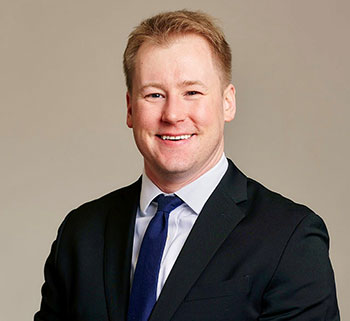 MMA recognizes Advocacy Champions every month.
MMA recognizes Advocacy Champions every month.
Learn about our current champion, as well as our past champions, listed to the right.


Benjamin Meyer, MD
Midwest Radiology
1. Why is being an advocate so important to you?
Advocacy is an opportunity to apply the same empathy and compassion that we show to our own patients in a broader context via improvement of the broader public health and health care delivery system. It allows physicians to have an additional impact beyond their individual practice.
2. What health-care related issue(s) have you advocated for over the past year?
As a member of, and more recently as Chair of the MMA Policy Council, I have worked on issues such as private equity investment in physician practice, gender-affirming health care access and protections, physician collective bargaining, and decriminalization of homelessness. Through additional roles in my state and national specialty societies, as well as the American Medical Association, I have advocated on issues such as Medicare physician practice payment reform, value-based imaging care, awareness of lung cancer screening programs, and the appropriate regulation for the use of augmented intelligence in medicine.
3. What advice would you offer to others who are interested in advocacy?
Specifically for those in the early practice phase of their careers as physicians, such as myself, one of the simplest and impactful things you can do is to pay your dues and be a member of your state, national, and specialty societies. To deepen your involvement, attend meetings for those organizations, and consider volunteering to serve on a committee and/or in leadership. If you have an issue you are passionate about, learn your organization's relevant policy and work to improve it, if needed. Attend your society's Hill Day, if your schedule allows, and attempt to cultivate personal relationships with your representatives at your state legislature. There are also opportunities to become involved in campaigns, either through PACs, direct contributions to candidates and networking, or giving your time.
